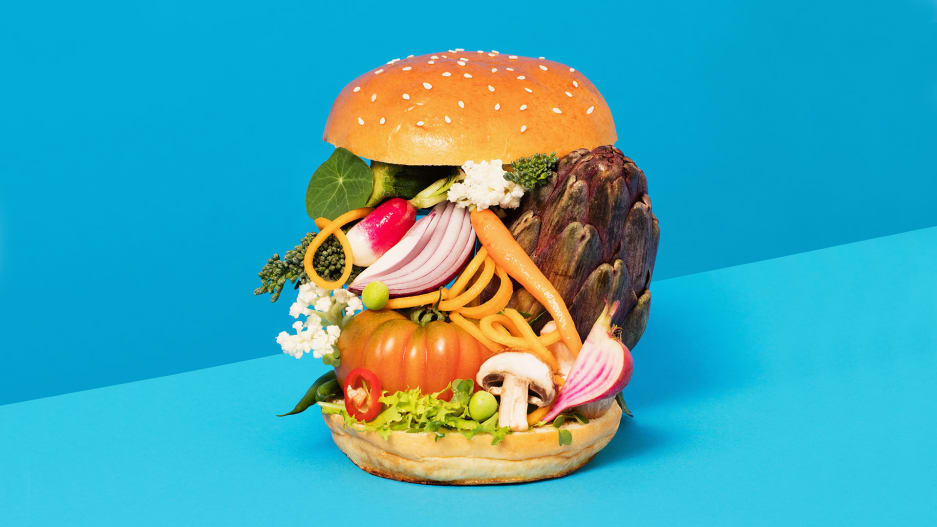- | 6:27 am
This simple theory of behavioral economics could convince humans to eat less meat

What we eat can have an outsize ill effect on the planet. Food production is believed to contribute anywhere from 20% to 40% of Earth’s greenhouse gas emissions, but animal agriculture is responsible for twice as much pollution as plants. Food-industry disruptors argue that their crop of sexy new plant-based alternatives and lab-grown meats will fix this problem.
Yet, despite a myriad of options (Beyond Meat pepperonis on Pizza Hut’s pies, Simulate Nuggs, the McDonald’s McPlant sandwich), Americans aren’t really adopting plant-based diets in droves just yet. The way their product sales are presented has, at times, given a false impression that they are—USA Today recently ran a story headlined “Restaurants saved 700K animals with plant-based offerings last year,” with no evidence that those plant-based offerings actually displaced meat orders. Beyond Meat’s sales have slowed lately, but the bigger issue for this trend is it’s not zero-sum; alt-meat sales can grow, but meat sales don’t automatically shrink. (Measuring this displacement has actually proven quite challenging.)
However, a new paper from the environmental group World Resources Institute (WRI) suggests maybe there is one incredibly easy way to get diners to swap meat dishes for plant-based ones, and it involves consumer messaging on restaurant menus.
WRI’s researchers invited 6,000 meat eaters to participate in a simulation in which they would order food from a pretend restaurant’s online menu. The control group got the normal menu; everybody else got one of 10 prompts that gently “nudged” them to consider eating less meat, emphasizing how doing so could make them healthier and the planet more sustainable.
They used what’s known in behavioral sciences as a “nudge intervention.” Nudge theory is built around the idea that positive reinforcement can influence a person’s decision-making. It’s been used in schools to improve student diets. (This 2020 paper found it helped get school kids to pick healthier lunches.) Richard Thaler and Cass Sunstein wrote a 2008 book about it, called Nudge, which explains: “Nudges are not mandates. Putting fruit at eye level counts as a nudge. Banning junk food does not.”
Building on all of this, WRI’s team hypothesized that by adding a simple, low-stakes message that encouraged customers to think greener as they debated what food to order could increase people’s selection of plant-based dishes. According to the paper, their hypothesis turned out to be right, and they report two messages in particular actually doubled the odds that a consumer would end up ordering a vegetarian menu item.
Message 1 falls under the theme, “Small changes can make a big difference”:
Each of us can make a positive difference for the planet. Swapping just one meat dish for a plant-based one saves greenhouse gas emissions that are equivalent to the energy used to charge your phone for two years. Your small change can make a big difference.
Message 2 goes under the theme, “Join a movement of people”:
90% of Americans are making the change to eat less meat. Join this growing movement and choose plant-based dishes that have less impact on the climate and are kinder to the planet.
The paper notes that the results were impressive: 25.4% of participants who were shown Message 1 picked a vegetarian dish, and 22.5% of those shown Message 2 picked a vegetarian dish, versus 12.4% in the control group. Cynics might describe these two consumer-messaging strategies as “guilt-tripping” and “peer-pressuring,” but to WRI the results support that “the use of social norms works to positively influence consumers’ choices in a variety of domains, including dietary choices.”
The team adds that their next step is putting these climate messages on real restaurant menus, to measure the effect on actual hungry customers. They write that they feel optimistic that this “nudge” thing, if done as consumers are about to order, can prove to be “a promising, scalable strategy for encouraging more sustainable dietary choices.”































